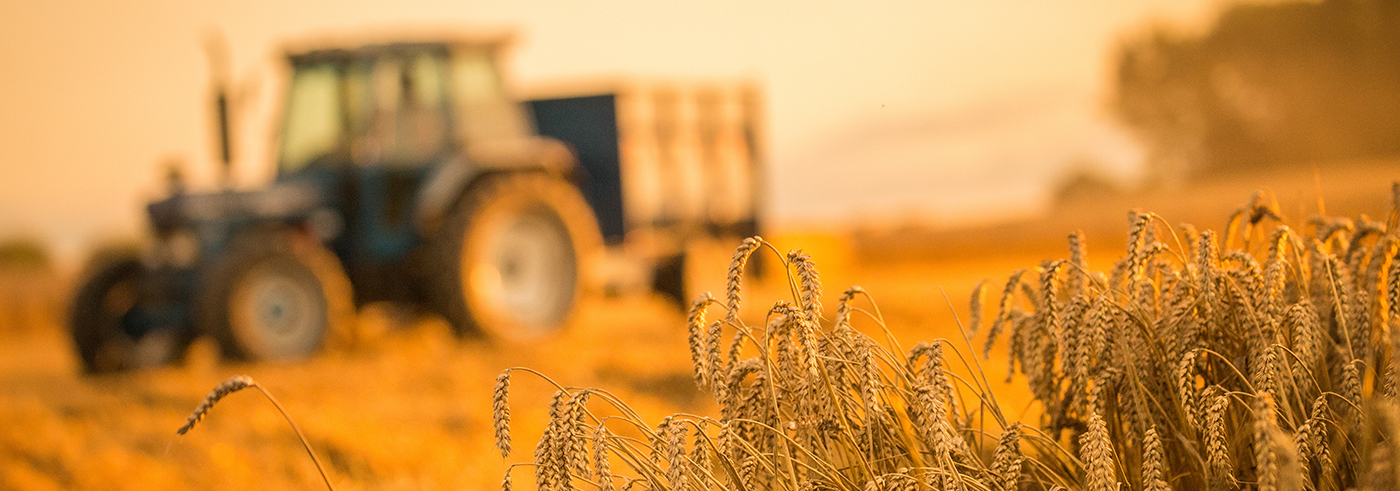Transatlantic Agricultural machinery manufacturers call on the UN Food System Summit to mainstream Sustainable Agricultural Mechanization worldwide

UN Food Systems Summit
Summit: September 26 (TBC), New York
Pre-Summit: July 26-28, Rome
20th July 2021
AEM, the Association of Equipment Manufacturers for North-America, and CEMA, the European Agricultural Machinery Industry Association, jointly call on Heads of State and decision-makers convened for the United Nations Food System Summit to mainstream Sustainable Agricultural Mechanization in global food systems to achieve the 2030 UN Sustainable Development Goals.
The United Nations’ Food and Agriculture Organization (FAO) estimates that between 720 and 811 million people in the world faced hunger in 2020 – as many as 161 million more than in 2019 – with nearly 2.37 billion people not having access to adequate food. According to the FAO’s SOFI 2021 report, the COVID-19 pandemic continues to expose weaknesses in our food systems, which threaten the lives and livelihoods of people around the world. Achieving the Sustainable Development Goal of Zero Hunger by 2030 remains an immense challenge.
How mechanization can support sustainable agriculture
The Agricultural Machinery industry is aware of the challenges the world is facing today, with an unprecedented critical convergence of population growth, dwindling natural resources and the impacts of climate change. There is a pressing need to increase global food production to feed the growing, and increasingly urban, global population. Agricultural production must increase by 70% by 2050 at a global level, according to FAO’s figures. At the same time, the planet is suffering from a continuing degradation of the natural resource base, with soil and water resources jeopardized by conventional agricultural practices involving intensive and excessive soil tillage. Especially in developing countries, this leads to low productivity on family farms resulting in low family income and an inability to invest in appropriate agricultural mechanization inputs. In short, doing “business as usual” is not an option on the table if we want to avoid widespread food shortages.
Tailored, inclusive, and integrated approaches to agricultural mechanization can make a real difference in increasing the welfare of farm households and create positive dynamics and opportunities for economic growth in rural areas. Unfortunately, in the most vulnerable parts of the world, human muscle remains the most important power source for smallholder farmers. For example, in sub-Saharan Africa, humans provide 65 percent of the power required for land preparation compared to 40 percent in East Asia, 30 percent in South Asia and 25 percent in Latin America and the Caribbean.
Manufacturers of Agricultural Machinery represented by AEM and CEMA provide the largest offer possible of farming equipment to serve the needs of farmers of all sizes, of all types of farming, and of all geographies, according to the applicable conditions and opportunities. From the simplest mechanical implement to the most complex smart farming system fully leveraging precision agriculture, automation, data and artificial intelligence. From seeding to harvesting and livestock management, mechanization and technology are part of any solution for sustainable global food systems, fit to feed 10 billion people by 2050.
In addition to more conventional methods of intensive farming and to an increased focus in bio and organic farming, the agricultural machinery industry has fully integrated the growing interest in Conservation Agriculture supported by mechanization. Conservation Agriculture is a complementary set of three general principles which are adapted locally to become compatible with the location specific environment. These general principles are minimal soil disturbance, maintaining a permanent organic soil cover, maintaining biodiversity in crop production. Implementing Conservation Agriculture involves the adoption of specific equipment, through an uptake of specific technologies dealing with the reduction of tillage, appropriate sowing and fertilizer delivery practices. Mechanization applied to Conservation Agriculture allows for a significant reduction of energy consumption compared to the technology used for tillage-based agriculture, since approximately half the energy is expended.
Mechanization in its broadest sense has great potential to increase productivity and improve livelihoods along the full agri-food value chain. This will include post-harvest operations such as storage and processing. It can also include food processing from simple packing of fresh produce for supermarket chains to more industrial type processing.
AEM and CEMA jointly stress that the Sustainable Agricultural Mechanization framework for Africa prepared by the FAO – including 10 key SAMA elements – offers a suitable basis to mainstream agricultural mechanization globally, when complemented by a proper and robust governance framework and implemented through a dual approach (both top-down and bottom-up) to ensure the involvement of local communities and define the critical training needs to reach the minimum level of competence needed.
One ask and 5 top principles for a successful Food Systems Summit outcome:
Our Common Ask: we jointly call on world leaders to mainstream Sustainable Agriculture Mechanization for men and women in global food systems, as a key enabler in achieving the Sustainable Development Goal of Zero Hunger by 2030. The proceedings and outcome of the 2021 Food System Summit must acknowledge and support the role of Agriculture Mechanisation to achieve the 2030 UN Sustainable Development Goals, leveraging efficiency, productivity, and innovation in agriculture and food supply chains towards enough safe, nutritious and affordable food for people around the world.
Top 5 principles: more generally, we jointly believe the 2021 UN Food Systems Summit process and outcomes should:
- Focus on ensuring all foods optimize their environmental and diet quality impacts: Substantial progress has been made in many countries’ agriculture and food supply chains to reduce environmental impact in recent decades, while increasing production to meet the needs of a growing population and reducing waste. The FSS should take into account trade-offs and synergies associated with producing all foods that make up a diverse, nutritious diet and not seek to denigrate or discourage the production or consumption of specific products or categories of products.
- Support food systems that are inclusive of science, innovation, and technology: Modern agricultural and food production/manufacturing practices advance sustainable food systems while efficiently meeting nutritional needs. The FSS should promote rather than discourage scientific and technological advancements in food systems in order to help deliver affordable access to nutrition and support food security.
- Allow flexibility and adaptation to diverse circumstances and contexts: There is no single, universal diet, set of farming or production practices, or group of policies that can or should be applied in all contexts. The FSS’ recommendations should avoid overly prescriptive or “one-size-fits-all” approaches and should allow adaptation as needed to suit myriad production and manufacturing systems; development circumstances; historical, cultural, and personal contexts; and other factors.
- Reflect international consensus, respect all domestic and international obligations and commitments, and uphold good regulatory practices: The FSS process and outcomes must reflect previous international consensus (e.g., the recently endorsed UN Committee on Food Security Voluntary Guidelines on Food Systems and Nutrition) and must be consistent with domestic and international trade commitments and other legal obligations, including World Trade Organization commitments. FSS recommendations should also reflect approaches consistent with good regulatory practices, such as principles developed and endorsed by organizations like the Asia Pacific Economic Cooperation (APEC) forum and the Organisation for Economic Cooperation and Development (OECD).
- Support and expand the positive role of rules-based international trade: Rules-based international trade is a major contributor to food security and food safety around the world, as it increases access, availability, and affordability of food. Member states should ensure the FSS’ outcomes promote rules-based international trade and support access to international markets for agricultural and food products.
About the Association of Equipment Manufacturers
AEM is the North American-based international trade group representing off-road equipment manufacturers and suppliers, with more than 1,000 companies and more than 200 product lines in the agriculture and construction-related industry sectors worldwide. The equipment manufacturing industry supports 2.8 million jobs in the U.S. Equipment manufacturers also contribute $288 billion a year to the U.S. economy. Visit www.aem.org for more information.
About CEMA
CEMA (www.cema-agri.org) is the association representing the European agricultural machinery industry. With 11 national member associations, the CEMA network represents both large multinational companies and numerous European SMEs active in this sector. CEMA comprises about 7,000 manufacturers, producing more than 450 different types of machines with an annual turnover of about EUR 40 billion (EU28 - 2016) and 150,000 direct employees. CEMA companies produce a large range of machines that cover any activity in the field from seeding to harvesting as well as equipment for livestock management.








